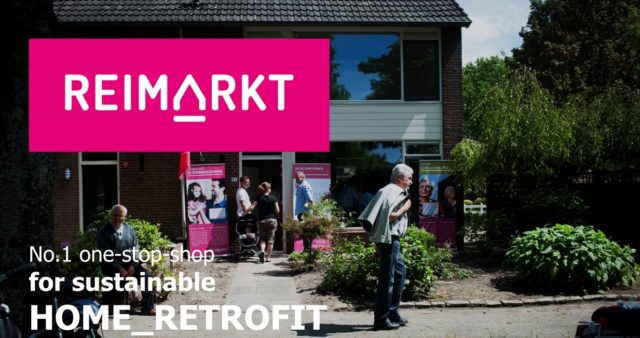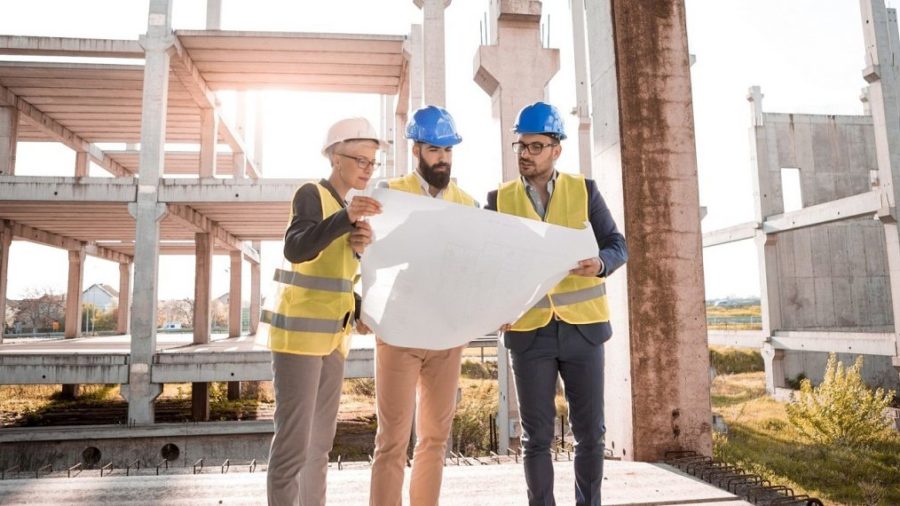In addition to those already planning energy efficiency upgrades, a further half a million households could start such work in the next five years if they had access to the right advice. Of these, 200,000 considered easily accessible technical support even more important than a soft loan – these were the most surprising findings of a recent survey, even for researchers. Domestic housing is responsible for 32% of energy use and 36% of emissions, so without a comprehensive renovation programme it will be impossible to meet the climate targets Hungary has committed to, and one-stop shops, already operating successfully in several countries, could play a key role. However, the promotion of retrofitting through technical advice should be complemented by predictable, long-term public funding and the management of the shortage of experts to bring about a change of scale in energy renovation.
Despite all the financial burdens and other hassles of renovation, the Hungarian population has a high willingness to modernise their homes: more than 1.4 million homeowners are planning to modernise their homes to the tune of HUF 3,000 billion over the next five years, according to the results of a representative 2020 household survey published in the Hungarian Energy Efficiency Institute’s (MEHI) study entitled The Hungarian Renovation Wave.
At the same time, the research, looking at renovations in recent years, showed that the vast majority of domestic energy renovations are only partial renovations, carried out without energy planning, so more than half of them do not even result in substantial energy savings. As a result, virtually thousands of billions of euros have been wasted over the last 5 years with hardly any reduction in building-related emissions and energy consumption. Partly due to a lack of long-term thinking, expertise readily available to all and financial resources, these are two important features of renovation:
1. The majority of energy renovations in Hungary are unplanned
In many cases, energy renovations in Hungary are not planned, but ‘reactive’ events, or we could call them ‘fire-fighting’. Unfortunately, the main concern is not energy saving but speed and cheapness: the main thing is that it works.
2. The word renovation basically means aesthetic renovation
(painting, moving walls, new built-in furniture), and fewer people think of energy efficiency improvements specifically: these are more like ‘sidetracks’ to traditional renovation. The most important motivation – and surprisingly often the starting point for energy renovation – is aesthetics, i.e. making the result beautiful. This is closely followed by increasing comfort levels, and thirdly energy savings, according to a previous study carried out in May 2020 as part of the RenoHUb project.
We are locking ourselves into outdated technology, ruling out emissions reductions for decades
Unfortunately, energy renovations carried out without expertise and planning, in a haphazard and ill-considered way, are a hotbed of the lock-in effect: we buy the cheapest, i.e. largely obsolete solution and then end up in the same place as before: we have not saved energy and will spend the same amount on monthly overheads for the next 15-20 years. However, a poorly designed/constructed, but still obviously costly renovation will take decades away from a renovation that will deliver real energy savings.
And this is not only a problem for individuals, resulting in permanently higher utility bills: residential buildings consume 32% of the country’s total energy consumption, according to the Hungarian Energy and Utility Regulatory Office (MEKH), and at the same time account for 36% of CO2 emissions, according to the Hungarian Central Statistical Office (KSH). These two figures alone show that the climate neutrality target set by Hungary by 2050 will not be achieved without reducing the energy consumption of residential buildings, i.e. without energy efficiency renovations (insulation, replacement of windows and doors, heating modernisation). This would require energy (deep) renovation of around 100-130 thousand homes per year.
In order of popularity of incentives: non-repayable subsidies, VAT rebate, 0% credit, one-stop shop, preferential credit
Renovation programmes are therefore inevitable. One of the most important elements of these is obviously the cash grant, with the biggest incentive – hardly a surprise – being the non-repayable grant. However, compared to soft loans, expert support is now seen by many as more important. The complexity of renovation and energy modernisation is a barrier to the importance of the lack of money when embarking on such an investment. A renovator cannot, in most cases, train himself to become an expert in a few weeks or months, leaving lay people with a serious lack of information and uncertainty, which makes decisions much more difficult and risky.
In the market research carried out for the RenoHUb project, the fears and obstacles listed by respondents coincided nicely with the frustrations that would make any of us hesitate before such a renovation. We don’t know how to do it, so we have to hunt down the right professionals, which means a lot of time and research. We compare technical content and quotes, which again, most people are not good at. Then there is the coordination of the various players, making appointments, waiting, and the resulting delays or poorly done work. A more complex energy renovation is a major project, and it is a huge challenge to manage it in our daily lives.
The solution: the one-stop shop office network
A renovation project obviously presents similar challenges all over the world, and one of the best ways to overcome the difficulties caused by a lack of expertise is, according to international experience, the so-called one-stop shop (OSS). In Hungary, the RenoHUb project has started to develop such a network of consultancy offices. In such an office, people who not only understand the professional and financial side of renovation, but are also able to talk about it in a clear way and are aware of what the average renovator goes through, sit and wait for people who want to renovate.
They provide all the necessary information for renovations in one place, from planning to financial options to choosing contractors and inspecting the work received, so that renovators can start the process with more confidence. Once they have consulted with experts, they have a better understanding of what they want, advice on what to look out for and the phone number of a trusted design energy expert, contractors and one-stop-shop operator in their pocket. In this case, the chances are much higher that the whole process will go as planned, resulting in a truly efficient home, with satisfied residents and significant energy savings.
But if you still think it’s too much to tackle a deep renovation on your own, one-stop shops can usually take on the task of managing the whole process on their own, after agreeing on your needs, ideas and options, at various package prices.
Project management, turnkey retrofit
In this case, the homeowner can sit back and relax: all the burdens have been taken off their shoulders, and the fee paid to the agency will probably be considered a fair return for the time and hassle saved – those who have worked with a good general contractor will probably nod vigorously. And with this service, not only the quality but also the quantity of energy renovations can be further improved, as it pulls out the poisonous teeth of most fears about upgrading.
The 2020 representative survey mentioned above showed that there is a strong demand for such offices from the residential side. So much so that, if free one-stop-shop technical and financial advice were available, half a million households would embark on energy renovation in the next five years who had not planned to do so under current circumstances. Surprisingly, one-stop-shops would be even more popular than soft loans: 65% more households, 200,000 more, would start energy renovation with one-stop-shops than with soft loans. This shows that money (or lack of it) is not the only obstacle to energy renovation.
What could a one-stop shop look like?
Giving information
In international practice, three models can be distinguished according to the depth of services provided. The first type provides information on the steps of the renovation, the choice of products, financial options and what to look out for during the design and construction phase. This type of office is more of a facilitator, meaning that the renovator takes the necessary steps, in return for which they usually offer free services. This is expected to be the case with the newly available National Energy Network, reorganised by the Hungarian Chamber of Engineers, which will allow residents and small businesses to get online or face-to-face advice from the experts of the free energy advice network.
Coordinating the process
In the second model, the one-stop-shop office will coordinate the process: it will help to contact the necessary professionals, follow the renovation process, provide downloadable templates, help to find financial opportunities and apply for grants. So renovators can really feel that someone is holding their hand, that they always have someone to turn to with questions, that they can rely on expert opinions and advice, but also that they have the freedom to go after their own ideas at any time.

Such a network of offices is currently being set up under the RenoHUb project, in which MEHI is participating. RenoPont plans to help renovators: both home and apartment owners and common agents, through a truly complex online platform (online knowledge base) and physical offices. The first office has already started its test run in Nagykanizsa, and the second office in Budapest and the online platform are expected to be operational this year. The aim of the project is to create a national network of several offices, where useful materials and knowledgeable professionals will help make energy renovations easier and more predictable, while ensuring quality results.
Providing full service
The third type of agency is a full service, available in different packages, which, once selected and the needs agreed, the agency will contract with the renovator and then independently manage the renovation process from the energy assessment, contracting the contractors and securing financing to quality control. It is therefore the most convenient and secure solution for renovators, offering peace of mind, predictability and reliability for a fixed cost in a renovated home.

A highly successful example of this type of renovation that has been in operation for many years is REIMARKT in the Netherlands, where more than 4,000 renovations have already been completed. Over the years, they have simplified the process of renovations they manage to an incredible degree, including consultation with prospective renovators: they have “boxed” the options into different renovation packages, which are basically tailored to life situations rather than building types, for example for new families who want a warm and safe home, or for elderly people who want a home that is easy to manage and accessible. Their approach and methodology makes energy retrofitting extremely simple, manageable and user-friendly, and is therefore very popular in the Netherlands.
A one-stop shop is necessary but not sufficient
One-stop-shop systems can provide many solutions to fears and barriers to renovation, but their success, when looking at examples abroad, is usually the result of a multi-stakeholder collaboration. The greatest impact, the real wave of renovation, can be achieved by initiatives that are underpinned by overarching policy objectives that support each other:
There should be a clear and well-communicated public objective for the energy (deep) renovation of residential buildings, and a process of awareness-raising on the priority of energy renovation should be launched.
To this end, targeted, predictable and easy-to-use subsidies should be available.
There should be cooperative, financing banks that see a business opportunity in one-stop-shop schemes, so that subsidies are complemented by financial products specifically designed for this purpose (e.g. soft green loans).
Ensure that the skills of renovation contractors are in place, i.e. it is crucial to train professionals, to address the shortage of professionals as soon as possible, and
in close connection with this and the other problems mentioned above, the unfortunate situation whereby temporary over-demand and shortages of skilled workers drive up the prices of construction services, thus preventing the price advantage offered by the various subsidies from reaching consumers. The consequences of unpredictable, campaign-like subsidy programmes include rapidly depleting subsidies, hastily put together, ill-considered plans (tenders) and unbelievable price increases in the construction industry due to sudden increases in demand.
At least the above would be necessary for the one-stop energy renovation consultancy offices to operate as successfully in Hungary as they do abroad, and for us to have a chance of achieving the 130,000 energy renovations per year that are necessary for climate neutrality in Hungary.
The article published on Másfélfok.hu is based on the MEHI study entitled “The Hungarian Renovation Wave”, in which the author, Fanni Sáfián, participated.


